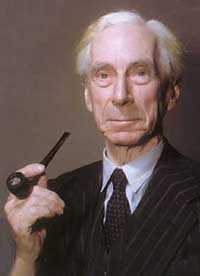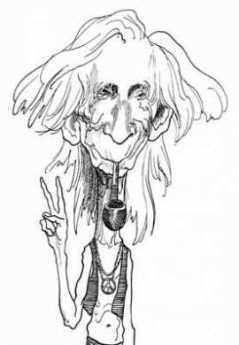Related Topics
Art in Philadelphia
The history of art, particularly painting and sculpture, has been a long and distinguished one. If you add in the art schools, the Philadelphia national influence on artists has been a dominant one.
Quakers: All Alike, All Different
Quaker doctrines emerge from the stories they tell about each other.
Academia in the Philadelphia Region
Higher education is a source of pride, progress, and aggravation.
Touring Philadelphia's Western Regions
Philadelpia County had two hundred farms in 1950, but is now thickly settled in all directions. Western regions along the Schuylkill are still spread out somewhat; with many historic estates.
The Main Line
Like all cities, Philadelphia is filling in and choking up with subdivisions and development, in all directions from the center. The last place to fill up is the Welsh Barony, a tip of which can be said to extend all the way in town to the Art Museum.
Nobel Prizes
Some Philadelphians won Nobel Prizes for work done here, or elsewhere. Some prize winners would deny they are Philadelphians, but their work was nevertheless done here.
Favorite Reflections
 In no particular order, here are the author's own favorites.
In no particular order, here are the author's own favorites.
Montgomery and Bucks Counties
The Philadelphia metropolitan region has five Pennsylvania counties, four New Jersey counties, one northern county in the state of Delaware. Here are the four Pennsylvania suburban ones.
Philadelphia People
New topic 2017-02-06 20:33:59 description
Bertrand Russell Disturbs the Barnes Foundation Neighbors

|
| Russell |
In 1940, the Barnes Foundation disturbed its Philadelphia's Main Line neighborhood in a way that had nothing to do with art. Dr. Barnes was still alive and running the place at that time so there can be no question about the testamentary intentions of the donor. He hired Bertrand Russell for a five-year contract to teach philosophy at the Foundation, under highly lurid circumstances. By doing so, he put his thumb in the eye of religions generally but especially the Roman Catholic Church, into the eye of the Main Line neighborhood that prized its privacy, and into the eye of the judiciary, although the judiciary found a way to get back at him.
 Do not fear to be eccentric in opinion, for every opinion now accepted was once eccentric. 
|
| Bertrand Russell |
Under the circumstances, hiring anyone at all would have been socially defiant, but Barnes went out of his way to offer a position to a man who was already internationally famous for sticking his own thumb in everybody's eye.
Lord Bertrand Russell was the third Earl, the son of a Viscount and the grandson of a British prime minister. He had such a brilliant mathematical mind that no less an observer than Alfred North Whitehead regarded him as the smartest man he ever met. He burned up the academic track at Trinity College, Cambridge, and was made a Fellow of the Royal Society at an early age. There was absolutely no one in the academic world who could look down on him, particularly no one in any American community college. His association with Haverford Quakers was established by marrying Alys Pearsall Smith, a rich thee-and-thou Quakeress then living in England, whose brother was the famous author Logan Pearsall Smith. Many early letters of Bertrand Russell contain instances of what the Quakers call "plain" speech.
 If a man is offered a fact which goes against his instincts, he will scrutinize it closely, and unless the evidence is overwhelming, he will refuse to believe it. If, on the other hand, he is offered something which affords a reason for acting in accordance to his instincts, he will accept it even on the slightest evidence. 
|
| Bertrand Russell |
By the time of World War I, this odd mixture of Quaker pacifism and English aristocratic arrogance seems to have unhinged Russell from social moorings, and he began a lifelong career of defiance mixed with a rapier wit that made just about everybody his enemy. He went to jail for pacifism, got divorced three or four times, openly slept with the wives of famous people like T.S. Eliot, and proclaimed that monogamy was not a natural state for anybody. He wrote ninety books, and his denunciation of religion was sweeping. All religious ideas were, in his view, not only false but harmful. Accordingly, everybody in polite society kicked him out, and although he was entitled to a seat in the House of Lords, by 1939 he was nearly impoverished. In desperation, he went to (ugh) America to seek his fortune. He didn't last at the University of Chicago, and even California eased him out. Finally, he was reduced, if you can imagine, to accepting an offer to teach Philosophy at the City College of New York. That proved to be totally unacceptable to Bishop Manning, who led a public outcry against using public funds to support such a radical, known to have held long conversations with Lenin. When a CCNY student was induced to file suit along those lines, an especially hard-nosed judge overturned the College appointment, with the rather gratuitous declaration that Russell's appointment would establish a Chair of Indecency. At that point, Albert Barnes stepped in and offered Russell a five-year contract to teach philosophy at the Barnes Foundation on Philadelphia's main line.

|
| Bertrand Russell in 1960s regalia. |
Bertrand Russell the bomb-thrower accepted the offer and came down to that quiet little lane where the neighbors object to the traffic coming to look at pictures. The five-year contract only lasted three years, when even Barnes got fed up, and summarily dismissed him. The circumstances have not been extensively documented, but they were sufficient to enable Russell to win a lawsuit for a redress of grievances. During that three year period on the Main Line, he had produced a book called History of Western Philosophy, which became a best seller and permanently relieved his financial difficulties, and was the basis for his winning the Nobel Prize in Literature. He spent the rest of his ninety-odd years leading demonstrations against the atom bomb, the Vietnam War, monogamy, religion and so on. There are those who regard Bertrand Russell as the role model for the whole Sixties generation, and, unfairly, the 2004 Democrat candidate for President. However, all that may be, his activity at the Barnes Foundation undoubtedly was a factor in the firm but the unspoken tradition of the Merion Township neighbors that they wanted to get that Art Gallery out of here.
Originally published: Thursday, January 28, 1993; most-recently modified: Tuesday, May 14, 2019